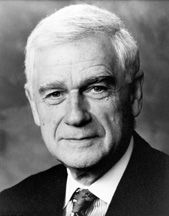 Chris Carlson Carlson Chronicles |
Look out, Lt. Governor Brad Little (Or substitute Schools Superintendent Tom Luna, or Rep. Raul Labrador---whoever your favorite is). You may think you’re the “crown prince” and next in line to be the Republican dynasty’s governor of Idaho, but the best politician in the state may be maneuvering to snatch that crown from your grasp and place it squarely on his head of distinguished white hair.
He has never held a political office in Idaho, but all the state’s major players know him. He is unquestionably the state’s best fund-raiser. He holds degrees in political science and demonstrates daily that he understands politics, especially the “rule” that perception is reality.
He reads books and can really talk about them. For nine years he has demonstrated mastery of one of the most politicized jobs in any state.
He is of course Bob Kustra, president of Idaho’s largest university, Boise State. He demonstrated again this month that even at age 68 he is on top of his game.
The evidence clearly shows he is a master practitioner of politics which leads one to wonder if his ambition has truly been satisfied? A yearning for high public office may still linger in his breast. It also goes far toward unraveling the mystery of why now he sacked loyal and long-time Athletic Director Gene Bleymaier.
It was as astute a pro-active, pre-emptive political move as any have seen in awhile. Odds are better than even that Kustra already knows or strongly suspects severe sanctions may be coming down for violations of various NCAA rules by not just Boise State’s nationally ranked football team, but in other sports also. (more…)


